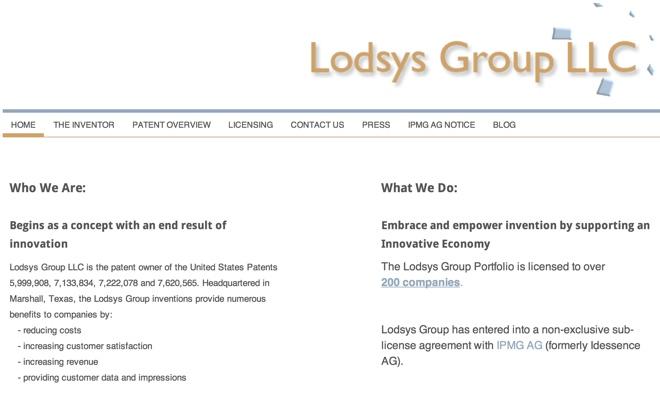A Texas judge last week dismissed a motion that would have allowed Apple to intervene in patent-holding firm Lodsys' ongoing attacks against iOS app makers, hindering the Cupertino company's ability to protect developers that provide the backbone of its important iOS ecosystem.
After two years of fighting to render aid to iOS app developers under fire from Lodsys, Apple saw its motion to intervene shot down by East Texas Judge Rodney Gilstrap, who rendered the company's challenge moot in an order last Tuesday, reports ArsTechnica.
The publication notes that Judge Gilstrap's decision not only dismissed Apple's motion, but allowed Lodsys to settle all cases with defendants.
According to Apple, the so-called "patent troll" uses a litigation technique in which app makers are threatened with patent infringement claims, or in some cases sued, to force "quick and cheap" settlements. Lodsys then dismisses or stays any claims before Apple's own counterclaims are ripe for decision.
By asking for relatively small royalties, Lodsys has been successful in extracting money from developers that would rather pay the fees than fight a a possibly drawn-out and expensive court battle.
Since 2011, Lodsys has been systematically targeting iOS app developers with patent infringement assertions regarding in-app purchasing. Apple, which already licensed the patents-in-suit with their previous owner Intellectual Ventures, argues that the existing arrangement should extend to cover iOS app devs that use the company's in-app purchasing API.
While Apple's argument, much of which dealt with a broader scope of the patent troll's tactics, may have been valid for an active case, but the motion was technically applied to suits in which the parties had already settled. Lodsys consequently filed to dismiss Apple's claims as moot, a motion Judge Gilstrap agreed with last week. He elaborated that Apple's broader claims were not applicable to the instant action due to the vast scope of cases it considered.
The jurist proposed Apple take action against Lodsys itself, though the effectiveness of such a suit is questionable given that the patent-holding firm already stated it recognizes Apple's license and has no grievance with the company. Another option could be for Apple to intervene in an upcoming case, but Lodsys' "quickly and cheaply" tactic may thwart any such attempts until that very strategy comes under scrutiny.
 Mikey Campbell
Mikey Campbell







-m.jpg)






 Charles Martin
Charles Martin
 Christine McKee
Christine McKee
 Wesley Hilliard
Wesley Hilliard
 Malcolm Owen
Malcolm Owen
 Andrew Orr
Andrew Orr
 William Gallagher
William Gallagher
 Sponsored Content
Sponsored Content








37 Comments
The judges in East Texas are so completely inbred and in cahoots with the patent trolls, it's not even funny.
Can we just declare war on eastern Texas? Technology issues should not be tried in that region as there is too much bias towards economic benefits to the plaintiffs filing there, Motel 6 is probably $186 per night, with special attorney discount.
Why is it that this insanity has been widely reported for years and yet no one has yet done anything about it?
If I was a developer here in NZ could I tell Lodsys to go suck my big fat nether regions? We have just passed a law that software patents can't be given out. Considering I would be a developer in NZ, Lodsys wouldn't have a leg to stand on would they? I suggest all developers move to New Zealand and tell Lodsys to go hang themselves.
Take a look at who is representing Lodsys....
Now take a look at who is on Eastern District Court...
Hmm, those names look awfully similar.
I am sure there is no conflict of interest there anywhere.